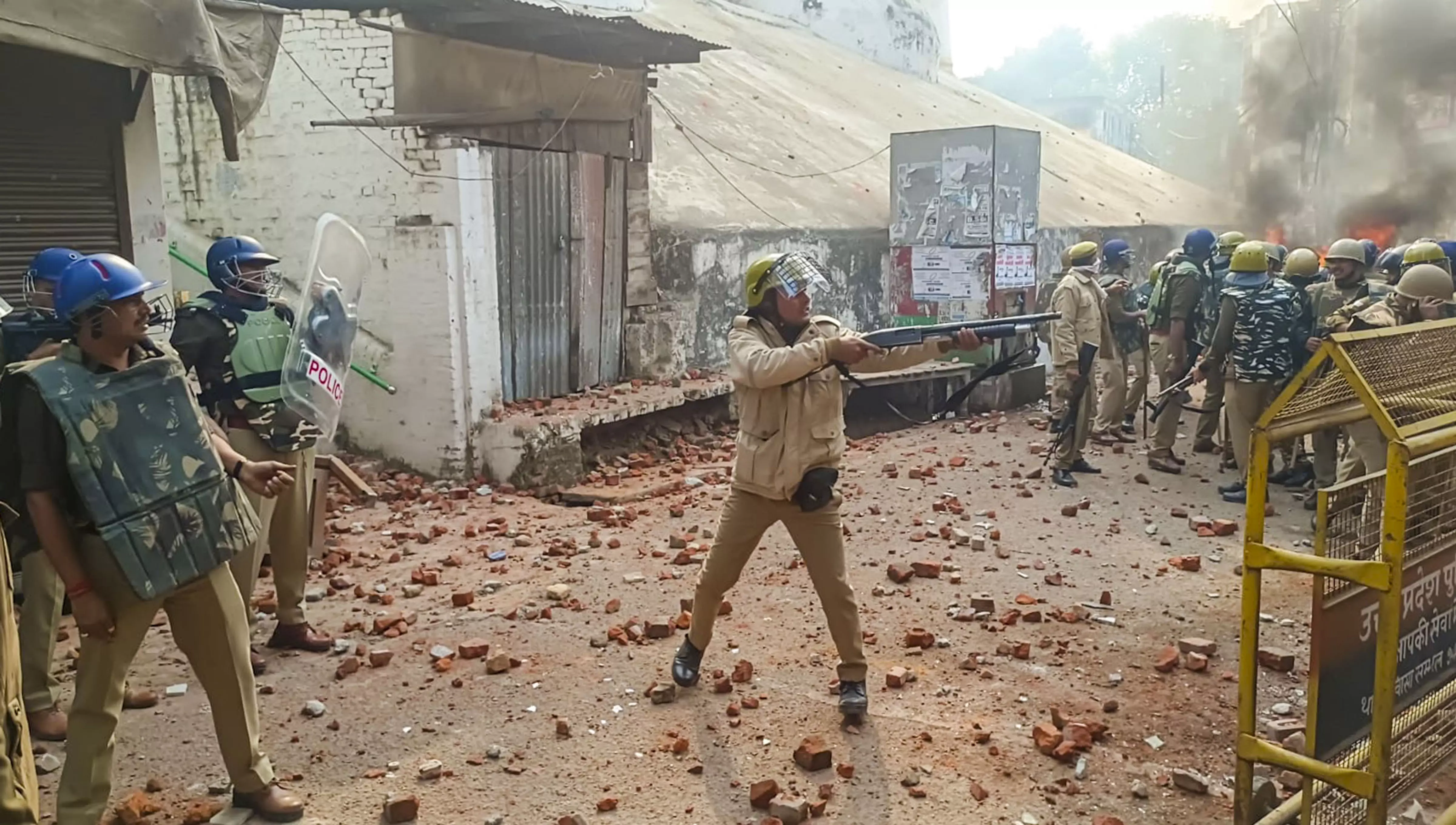DC Edit | Sambhal: Stick to 1991 Worship Act

Police try to control the situation amid violence during a second survey of the Jama Masjid, claimed to be originally the site of an ancient Hindu temple, in Sambhal, Sunday, Nov. 24, 2024. (PTI Photo)
It’s very natural for a country with a history of several millennia of human civilisation to host people of different persuasions in every aspect of life. As civilisation advanced, faultlines appeared among the followers of these thought streams; the intelligent and sensible ones found common ways for solving them so that those faultlines do not negate the progress of society. They overcome the pressures of the ancient times when might was right and an eye for an eye was the rule.
There is, however, a section of people in India who want India to return to those ancient times though the Constitution and the laws that define this country now insist that we as a country is founded on the principles of rule of law. They would defy every symbol of civilisation and sensibility in their quest for power.
The death of four persons who were protesting against a court-ordered survey of a Mughal-era mosque in Sambhal in Uttar Pradesh is the result of the attempts by the very same people who refuse to believe that India is a constitutional democracy, and not a theocracy. They would go in search of the signs of their faith under structures at present being used by others. They would find pliant courts willing to play ball under one pretext or the other, though the Places of Worship (Special Provisions) Act, 1991, mandates that the religious character of a place of worship existing on the 15th day of August, 1947, shall continue to be the same as it existed on that day and that it, and that and no suit, appeal or other proceeding with respect to any such matter shall lie on or after such commencement in any court, tribunal or other authority.
It is the job of the state to ensure that the rule of the law prevailed; it’s the responsibility of the judiciary that it the rules of the game are not changed midway. It’s a choice we as a people to make whether to move forward or return to the ancient.
( Source : Deccan Chronicle )
Next Story
